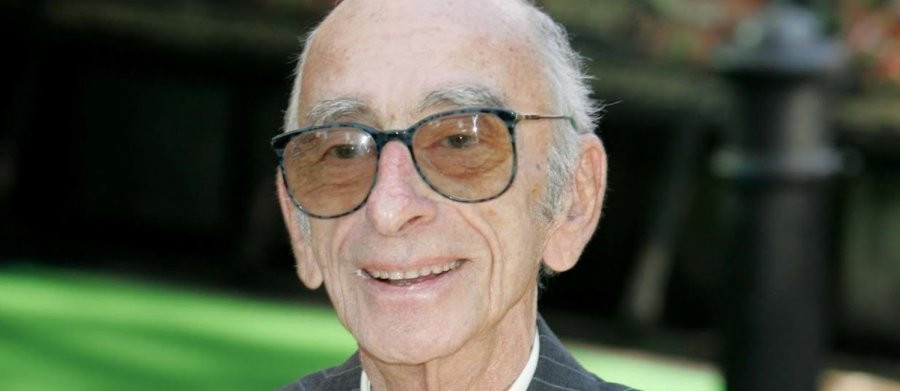
David Kelly
Biography: Brian Slade
There are faces on television, particularly from the three channel days, that are instantly recognisable and yet somehow people cannot put a name to them. If you tell anybody how funny you thought David Kelly was, surprisingly people will not always follow the thread. However, he was one of the shining lights in the success of the early episodes of Fawlty Towers, charmed us as a one-armed waiter and was arguably Dublin’s most famous acting export – not to mention a hero to a Hollywood legend and a sex symbol while in his seventies. If you mention hopeless builder Mr O’Reilly or Robin’s Nest suddenly people are with you.
David Kelly was born in Dublin in 1929. A true Irishman, regardless of where filming would take him he would never leave his birth city. He was educated at Synge Street Christian Brothers School, an experience that held no positive memories for him, and here he learned like so many of his peers that the best way to avoid being a target for the bullies was to make people laugh. Kelly decided to pursue a career in the performing arts and although his parents never actively tried to dissuade him from choosing acting as a career, they insisted he at least learn some kind of alternative skills should acting not work out. As such he learned calligraphy and painting skills and he would later suggest that his dapper sense of style was influenced by how he thought painters should dress. While Kelly often played a rather dishevelled character on screen, off screen he was rarely seen in anything less than impeccable styles. His calligraphy skills were put to use in future like by sending personal thank-you notes to those kind enough to employ him.
Stage work was Kelly’s first step into acting, having a particular soft spot for the Gate Theatre in Dublin throughout his career. He would appear here in the early stages of his career and return regularly throughout.
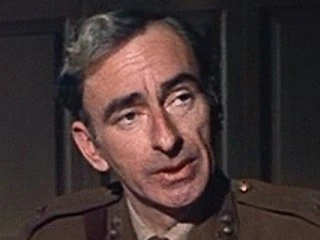
Kelly’s celluloid debut would be in the feature film A Terrible Beauty, albeit significantly down the cast and having only one line. He would appear on television in minor roles before getting his biggest break to date in 1968, courtesy of the sitcom Me Mammy. Also starring Yootha Joyce and being a vehicle for Milo O’Shea, with whom Kelly had a lifelong friendship, Me Mammy was a very successful comedy in which Kelly played Cousin Enda. It focussed around a London-based Irishman played by O’Shea and his attempts to pair up with his secretary, normally foiled in doing so by his dominant mother. Another victim to the BBC’s wiping policy, Me Mammy may not be as well-known now as some of its equals, but it brought Kelly to a wider audience than his television exploits back home on RTE.
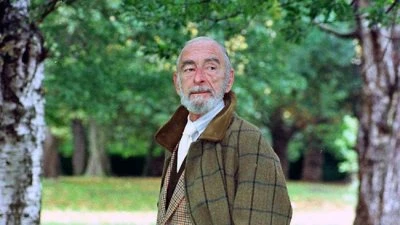
Guest appearances would follow in a number of established sitcoms, but leading roles eluded Kelly. In 1975 however, he would gain more notoriety from one brief role in sitcom legend than most actors would gain throughout their entire careers. Cast as the dubious Irish builder, Mr O’Reilly, Kelly brought a hysterical performance to his short role as the low-cost and low-skilled option chosen by Basil Fawlty to carry out renovations and enhancements to the ground floor of Fawlty Towers. It’s highly unlikely that such a role would be permissible in the modern era, but the hapless O’Reilly’s insistence on reminding Basil of things that the Good Lord might have had a hand in is probably the only time in the two series of Fawlty Towers where a guest star took as much credit as John Cleese for the success of an episode. The success was not lost on Kelly, who would say decades later that regardless of his other acting successes across more than 50 years, Fawlty Towers would likely be on his gravestone.
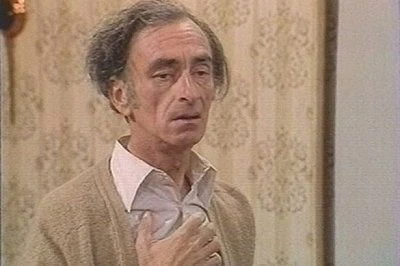
If that brief but memorable performance in Fawlty Towers wasn’t enough to cement a place in comedy folklore, what followed for Kelly surely would. As a follow up to the hugely successful Man About the House, Robin’s Nest saw Richard O’Sullivan’s Robin Trip character settle into a life with partner Vicky (Tessa Wyatt) running a bistro restaurant. Under the disapproving eye of his future father-in-law and reluctant business partner James Nicholls, played by Tony Britton, Trip has advertised for a washer-upper, and Kelly’s Albert Riddle arrives to fill the void. Not unlike the famous one-legged Tarzan sketch from Peter Cook and Dudley Moore’s Not Only, But Also… Trip sees Riddle having only one arm as a potential snag, something Riddle is oblivious to. Riddle sees only his prison record as an obstacle to his employment and pleads with Trip to ‘rescue a piece of human flotsam,’ Trip almost mistakenly hires the one-armed Irishman but in the six series that follows, never finds the heart to release his new staff member, who breaks crockery from the moment he arrives.
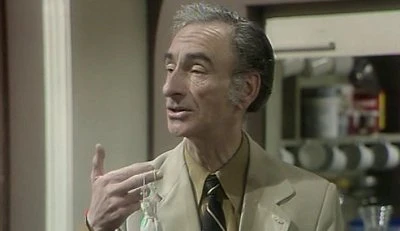
Robin’s Nest repeated the success of its sitcom predecessor and much of the credit must go to Kelly. Britton’s Nicholls is the figure of authority that Robin and Vicky rub up against, but the heart of the show comes from Riddle. He offers slapstick comedy, Irish charm and a down-on-his-luck character that completes the ensemble perfectly. Kelly himself described the show as heaven, despite having to have his arm strapped behind him!
Despite his success on Robin’s Nest, Kelly never traded Dublin for London in the name of his career. His roots were vital to him, so it was no surprise that after the end of Robin’s Nest Kelly didn’t return to British television series, although he gained huge plaudits for his performance as Rashers Tierney in RTE’s Strumpet City.
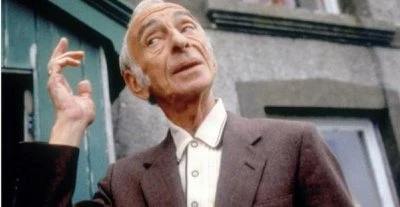
Kelly’s role as Mr O’Reilly earned him unending worldwide fame, despite covering only eight minutes of screen time, but amongst his numerous roles over the next few decades, two would bring him to new audiences with his usual gentle Irish charm. In 1998 he starred in Waking Ned, appearing as Michael O’Sullivan, one of two lifelong friends living in the small Irish village of Tullymore trying to persuade the entire village to pretend that he is in fact Ned Devine – the holder of a winning lottery ticket who had died instantly at the shock of his windfall. The entire film had a feel good factor that relied heavily on the amiability of Kelly, who was nominated for a Screen Actors Guild award for his performance, and who gained some female followers for his frantic naked motorcycle ride!
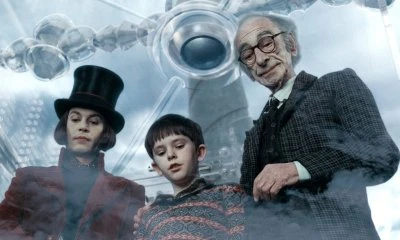
Subsequent to Waking Ned, Kelly would achieve Hollywood fame at a level he had never previously attained when he played Grandpa Joe in Tim Burton’s remake of Charlie and the Chocolate Factory. His twinkling charm shone through and captured hearts young and not-so-young. Burton said at the time that Kelly was the only actor he wanted for the role, and when honoured with a Lifetime Achievement Award by the Irish Film and Television Academy, Johnnie Depp said of Kelly, ‘You are officially my hero.’
Receiving that award not long before he passed away, Kelly admitted that he never had any real intentions to do anything other than act. He was therefore somewhat bemused and clearly humbled by his honour, admitting that, ‘It is bizarre that I am now being rewarded for having a dream come true.’
Kelly was respected and loved by his co-stars - his style, humour, humility and charm all conspired to make him everything that Mr O’Reilly wasn’t. Perhaps then director of the Gate Theatre, Michael Colgan, summed it up best when he said after Kelly’s passing, ‘Whatever ‘it’ is, David Kelly had it – he had it all.’
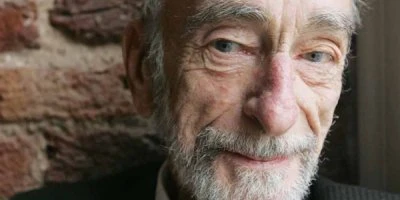
About Brian Slade
Born and raised in Dorset, Brian Slade turned his back on a twenty-five-year career in IT in order to satisfy his writing passions. After success with magazine articles and smaller biographical pieces, he published his first full-length work, `Simon Cadell: The Authorised Biography'.
Brian is a devoted fan of the comedy stars of yesteryear, citing Eric Morecambe, Ken Dodd, Harpo Marx and Dudley Moore amongst his personal favourites. He was drawn to the story of Simon Cadell through not only `Hi-de-hi!' but also `Life Without George', a programme he identified with having grown up in the Thatcher era.
Published on February 19th, 2020. Written by Brian Slade for Television Heaven.









